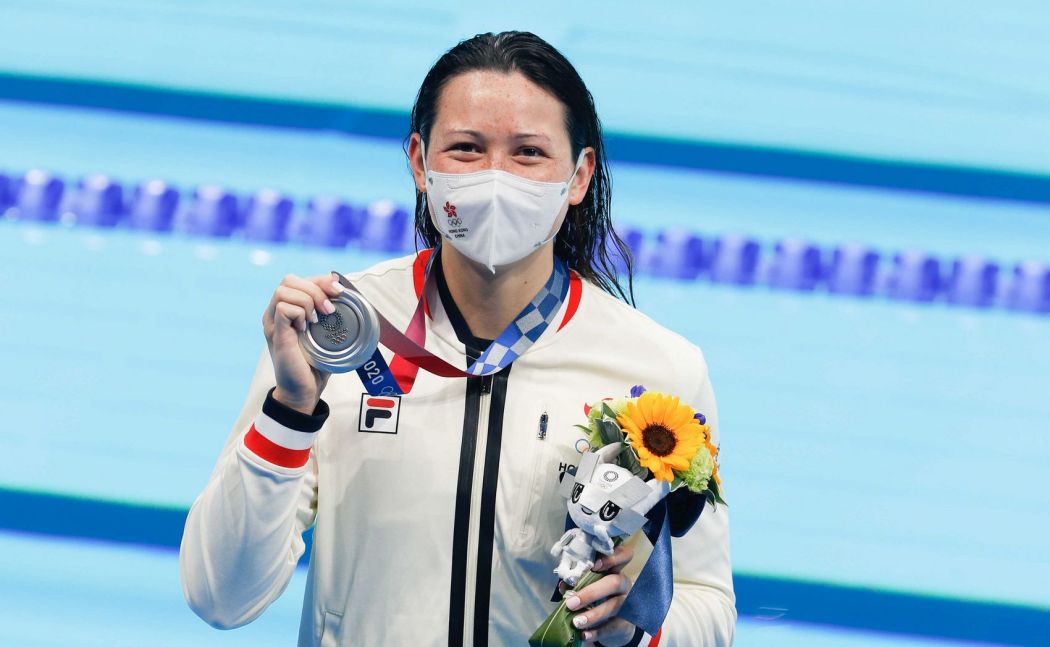Hong Kong has purchased the broadcasting rights for the Paris Olympics this summer, with the games licensed to four TV stations in the city.

Addressing reporters at a weekly press conference on Tuesday, Chief Executive John Lee said Hongkongers would be able to watch the Olympics and the Paralympics on TVB, ViuTV, HOY TV and public broadcaster RTHK.
“[The purchasing of rights] is a response to Hongkongers’ wishes, allowing all Hongkongers to watch the Paris Olympics and Paralympics on TV for free so that we can all cheer for our athletes,” Lee said, speaking in Cantonese.
He added that the broadcasts would bring “immense value to society.”
The Olympics will take place in Paris, France, from July 26, and the Paralympics will begin about a month after. France is six hours behind Hong Kong, meaning that some medal finals will be in the early hours in the city.
Lee said that so far, Hong Kong athletes had qualified to compete in 15 events at the Olympics and 12 in the Paralympics. According to a Legislative Council document, the sports for the Olympics include cycling, sailing, swimming, table tennis and windsurfing. For the Paralympics, athletes are slated to compete in boccia, equestrian and swimming events.
He added that he believed athletes would clinch more qualifications in the lead up to the games.
Apart from in 2021, when the government bought the broadcast rights for the Tokyo Olympics, TV stations have historically negotiated with the International Olympic Committee to purchase rights and work out broadcast arrangements.
Hong Kong did not buy the license rights for the Winter Olympics in Beijing in 2022, which saw broadcaster TVB seal an exclusive deal to air the games.
‘Value for money’
Explaining why the government decided to purchase the broadcasting rights, Lee said “the current market situation may not support TV stations to make big investments.”
He did not share how much the government paid for the broadcasting rights, citing the confidentiality of agreements. But he said it was less than what the government had paid for the Tokyo Olympics, and what TV stations had paid in the past.
“The amount paid is reasonable and value for money,” Lee added.

The Hong Kong team saw its best ever results at the Tokyo Olympics three years ago, walking away with six medals including two silver medals in swimming and a gold medal in fencing.
Lee said Hongkongers gathered at shopping malls to cheer for athletes, creating a sense of unity and boosting the atmosphere in society.
He acknowledged that viewership in Hong Kong might not be as high due to the time difference with France, but that the government’s purchase would be worth it.
“It won’t be as easy for us to promote [the Paris Olympics] compared to the Tokyo Olympics,” Lee said. “But I think there are still many ways. If it involves big events, I think… people will find their own ways, find their own time, even with the time difference, to watch live.”
Support HKFP | Policies & Ethics | Error/typo? | Contact Us | Newsletter | Transparency & Annual Report | Apps
Help safeguard press freedom & keep HKFP free for all readers by supporting our team

LATEST FROM HKFP
HKFP has an impartial stance, transparent funding, and balanced coverage guided by an Ethics Code and Corrections Policy.
Support press freedom & help us surpass 1,000 monthly Patrons: 100% independent, governed by an ethics code & not-for-profit.











